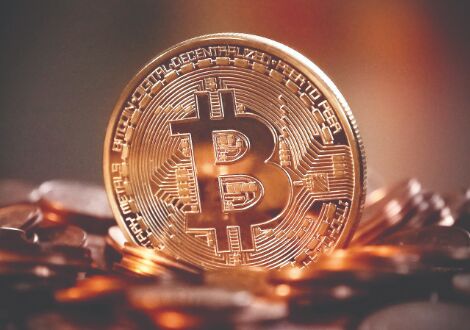Bitcoin brings hope, doubt for Salvadorans sending money

Miami (US): El Salvador is betting that this week's pioneering adoption of Bitcoin will spur its economy, especially one of its most crucial sources of revenue: money sent home by Salvadorans in the United States.
A fervent proponent of the cryptocurrency, President Nayib Bukele has asked the more than 2 million Salvadorans who live overseas to send their remittances in Bitcoin, arguing it will be cheaper than transferring dollars. He also says it will stimulate foreign investment.
It will be a great benefit for our people, he has written in Twitter.
But both those at home and abroad are uncertain if the plan, which takes effect Tuesday, will work as intended. Some say the system is too complicated and opaque. Others worry about the way Bitcoin values can rise and fall sharply overnight potentially giving recipients a windfall or a loss.
Looking on the bright side is William Justo, a 44-year-old Salvadoran who has lived in Chicago since 1986.
Digital currency offers the opportunity of having access to something similar to a bank and making money when the currency goes up. Even farmers will have access to all of that, said Justo, who sends remittances every week to two children, his wife and grandmother.
It will be something very good for the economy, said Justo, who says he may send bitcoins now instead of dollars.
Arnolfo Diaz, in Maryland, thinks differently.
Old people and farmers, which are many of the Salvadorans who live here (in the United States), are not up with technological change, said the 58-year-old. It's going to be confusing, complex for them .
Bitcoin, an alternative to government-backed money, exists only in computer circuits and memory. It's based on data-scrambling cryptography thus the term cryptocurrency lots of processing power and a distributed global ledger called a blockchain, which records all transactions.
No central bank or other institution has any say in its value, which is set entirely by people trading Bitcoin. That independence and secrecy have made it a favorite of people suspicious of governments, as well as criminals trying to hide their transactions.
Other countries have dabbled in cryptocurrencies, but none has gone so far as El Salvador. Starting Tuesday, all businesses will have to accept payments in Bitcoin, except those lacking the technology to do so, according to a law approved by the congress, which is controlled by Bukele's New Ideas party.
The U.S. dollar, however, will remain the country's main currency and no one will be forced to pay in Bitcoin.
The government is using a digital wallet app called Chivo that can be used for payments and remittances in Bitcoin and Bukele has promised that Salvadoran citizens who download it and sign up will receive receive $30 worth of bitcoins in credit.
The legislature has allocated $150 million as a trust fund to get the system established.
Some 200 kiosks will be set up to let people make deposits or withdraw their money in dollars.



